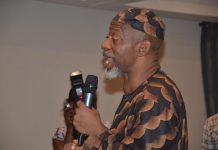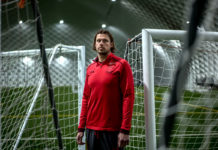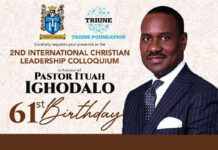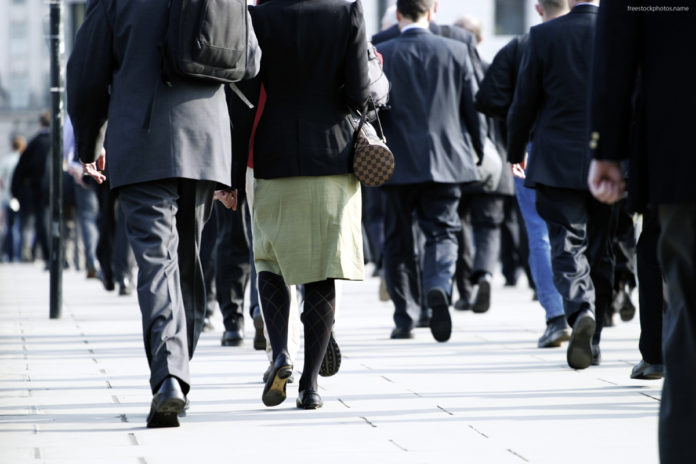Movement or Locomotion is one of the attributes of Life. Almost everything we need to get done as human beings requires us to move parts or all of our bodies.
Apart from the comfort and enjoyment we derive from being able to move around, inability to move adequately would quickly impair our general health. We need to move around to maintain our hearts, lungs and other organs in full functioning mode.
Compromised movement of even small parts of the body causes inconvenience. I am always taken back at the unpleasantness that even a little pain in a finger causes; as a consequence, one might require help with activities of daily living that we would normally perform inattentively. Also, prolonged lack of movement causes the structures involved in movement to markedly reduce in strength and functioning.
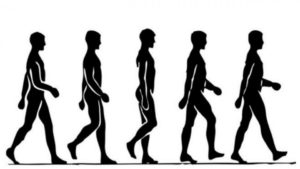 It is therefore important that we are able to move easily, and that we do move all through life. Movement chiefly requires healthy bones, muscles and joints as well as general well being.
It is therefore important that we are able to move easily, and that we do move all through life. Movement chiefly requires healthy bones, muscles and joints as well as general well being.
Here are key points we need to keep aware of to improve our prospects for easy and pain-free mobility for life.
- All abnormalities of movement in young children should be reported and checked out. These include deformities or oddities in appearance such as “bow legs”, “K-legs”, flat feet, clubbing of feet, limps and all such. Even if you think it to be mild, have an expert look at the child.
- Take nutrition very seriously right from childhood. Provide a varied diet full of nourishment from all the food groups, as muscles and bones need plenty of proteins, vitamins and minerals to develop well. Meat, fish, eggs, milk, fruits and vegetables, and plentiful fresh air and sunlight all contribute to optimum mobility
- Sporting and musical activities make coordinated movements second nature and improve chances of lifelong activeness. It is never too early or late for either or both. Get the kids outdoors and moving! Remember that sunlight provides Vitamin D, which is fundamental to bone health.
- Strengthening of practices that enhance posture keep the bones and joints healthier for longer. These include uprightness while sitting or standing, pulling in abdominal muscles and keeping feet firmly on the floor while sitting. Avoid crossing of legs as most do when sitting.
- Prevention of accidents by paying attention to safety at home and at work. Early learning and observing the rules for manual handling to guide lifting and moving of heavy objects is important to safeguard against mishaps and against spinal injuries. Effects of such damage can be immediate or/and long-term.
- Daily stretching around the joints to keep them supple, thereby preventing stiffness and injury. Gentle stretching as warm-up must also be done to ease into strenuous sporting activities.
- Avoid the tendency to undertake unaccustomed heavy exercise. Over-exertion will predispose to injury of muscles and joints, and can cause other serious health incidents including collapse and sudden death.
- Keep active! When you’re at home, walk around, do chores, resist the temptation to have other people wait on you hand and foot. Moderate exercise that makes you breathe faster and increases your heart rate and lasts for 30-40 minutes should also be undertaken daily
- Drink plenty of water everyday. Water ensures that the body’s tissues work well. Muscles and joints also benefit greatly from adequate hydration. Remember to sip water during work-outs and while playing sports
- Adequate sleep is vital to ensure minor injuries heal properly as recovery is optimal during restful sleep. Sleep also reduces chances of accidents and ill health.
Being able to move around with ease is essential at all points in life. With advancing age, our joints also show signs of wear and, tear and arthritis often occurs. Arthritis shows as pain on movement or even at rest, and this may be accompanied by joint swelling. The hips, knees and ankle are the most commonly affected due to the weight-bearing function they have had to perform over many years. Additional disease processes may also compound arthritis in the elderly.
There are many interventional strategies to ensure mobility is maintained all through life. While paying attention to the points highlighted above, seeking specialist care early when normal movements of the body are challenged by pain, or become difficult is key to lifelong mobility.
 Dr Adeola Oluseyi Ayorinde is the Managing Partner of Primrose Specialist Hospital. Doctor Deola is impassioned about leading men, women and children of all ages to a higher level of living in their bodies and minds. Through receiving modern and relevant health information in a simple format, audiences at her vibrant sessions are awakened in their appreciation of mental and bodily processes. Such knowledge empowers them to be their own first doctors, robust in health and ready to conquer in their vocations. She is an avid player of lawn tennis and squash racquets, and is married with children.
Dr Adeola Oluseyi Ayorinde is the Managing Partner of Primrose Specialist Hospital. Doctor Deola is impassioned about leading men, women and children of all ages to a higher level of living in their bodies and minds. Through receiving modern and relevant health information in a simple format, audiences at her vibrant sessions are awakened in their appreciation of mental and bodily processes. Such knowledge empowers them to be their own first doctors, robust in health and ready to conquer in their vocations. She is an avid player of lawn tennis and squash racquets, and is married with children.



